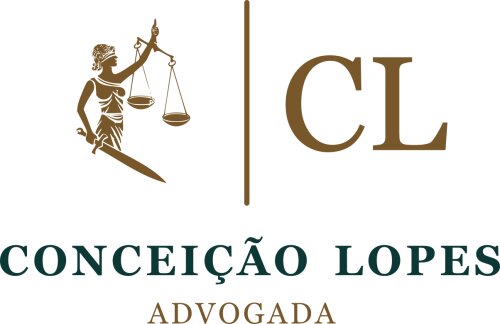Best Creditor Lawyers in Portugal
Share your needs with us, get contacted by law firms.
Free. Takes 2 min.
Or refine your search by selecting a city:
List of the best lawyers in Portugal
About Creditor Law in Portugal
Creditor law in Portugal is primarily concerned with the rights and obligations of creditors and debtors, and it plays a crucial role in ensuring financial transactions operate smoothly within the economy. It encompasses a range of legal provisions aimed at protecting the rights of creditors to recover debts owed to them. These laws are designed to ensure creditors can pursue the recovery of loans or other credit facilities they have extended, within the framework stipulated by the Portuguese Civil Code and other relevant regulations.
Why You May Need a Lawyer
There are several situations where a legal expert in the field of creditor law can be indispensable:
- If you are owed money by another party who is unable or unwilling to pay, a lawyer can advise you on legal avenues for debt recovery.
- Legal representation is crucial if any debt recovery disputes arise, whether these involve negotiations, litigation, or enforcement of judgments.
- Businesses might require assistance ensuring their credit agreements comply with legal standards, helping to mitigate financial risks.
- Should you face insolvency or bankruptcy issues as a creditor, understanding your legal rights and positioning is essential.
Local Laws Overview
Portugal’s legal framework concerning creditor and debtor relationships is primarily scoped within its Civil Code, with notable aspects including:
- Debt Recovery: Portuguese law provides several mechanisms for debt recovery, including court processes and extrajudicial methods.
- Guarantees and Securities: Laws around securities and guarantees ensure creditors’ interests are protected when providing credit.
- Insolvency and Bankruptcy: In cases of debtor insolvency, creditors’ claims are typically addressed through structured insolvency procedures.
- Contractual Obligations: Regulations emphasize the importance of clear contractual terms, especially regarding interest rates and repayment terms.
Frequently Asked Questions
What are my options if a debtor refuses to pay?
You can initiate legal proceedings to sue for debt recovery, or consider insolvency proceedings if applicable. Consult a lawyer for an analysis of your specific case.
Can I claim interest on overdue payments?
Yes, under Portuguese law, you can claim interest on overdue payments, usually specified in the original contract. If not stated, statutory interest rates may apply.
What happens if a debtor declares bankruptcy?
In bankruptcy, creditors are grouped, and claims are addressed in a structured manner, potentially recovering parts of the debts depending on asset realization.
How can I secure a loan against a Portuguese company?
Through legal instruments like guaranteeing securities or registering a mortgage or pledge against company assets, ensuring any credit risk is mitigated.
What is the legal procedure for debt recovery?
Debt recovery might start with negotiation. If unresolved, it could escalate to legal proceedings involving a debt claim lawsuit.
Are there limitations on the amount of interest I can charge?
Yes, Portuguese law stipulates maximum allowable interest rates, both statutory and contractual, to prevent exploitative lending.
How long does it typically take to recover a debt through legal means?
Recovery timelines vary, often depending on the complexity of the case and judicial backlog, but can range from a few months to over a year.
Do I need a lawyer to draw up a credit agreement?
While not obligatory, having a lawyer ensure compliance with legal standards can prevent issues and protect your interests.
Can I enforce a foreign judgment in Portugal?
Foreign judgments can be enforced in Portugal, but usually require recognition by Portuguese courts under international conventions or EU regulations.
What are my legal rights during insolvency proceedings?
Creditors have certain staked rights within insolvency proceedings, including claim submission and participation in creditor meetings.
Additional Resources
For further assistance, consider reaching out to the following resources:
- Portuguese Bar Association: Can assist in locating qualified creditor law specialists.
- Direção Geral de Política de Justiça: Provides information and resources regarding civil and commercial law.
- The Portuguese Chamber of Commerce: Offers guidance particularly for businesses involved in credit-related disputes.
- Consumer Protection Agencies: Useful if creditor issues involve consumer-related transactions.
Next Steps
If you require legal assistance regarding creditor matters in Portugal:
- Consultation: Seek an initial consultation with a legal expert specializing in creditor law to discuss your specific needs.
- Documentation: Prepare relevant documents, including contracts, communications, and any correspondence with the debtor.
- Legal Representation: Decide on your preferred mode of legal representation, whether through a law firm or independent legal advisor.
- Strategy: Develop a comprehensive strategy with your lawyer to approach debt recovery or other creditor-related issues effectively.
Lawzana helps you find the best lawyers and law firms in Portugal through a curated and pre-screened list of qualified legal professionals. Our platform offers rankings and detailed profiles of attorneys and law firms, allowing you to compare based on practice areas, including Creditor, experience, and client feedback.
Each profile includes a description of the firm's areas of practice, client reviews, team members and partners, year of establishment, spoken languages, office locations, contact information, social media presence, and any published articles or resources. Most firms on our platform speak English and are experienced in both local and international legal matters.
Get a quote from top-rated law firms in Portugal — quickly, securely, and without unnecessary hassle.
Disclaimer:
The information provided on this page is for general informational purposes only and does not constitute legal advice. While we strive to ensure the accuracy and relevance of the content, legal information may change over time, and interpretations of the law can vary. You should always consult with a qualified legal professional for advice specific to your situation.
We disclaim all liability for actions taken or not taken based on the content of this page. If you believe any information is incorrect or outdated, please contact us, and we will review and update it where appropriate.
Browse creditor law firms by city in Portugal
Refine your search by selecting a city.















